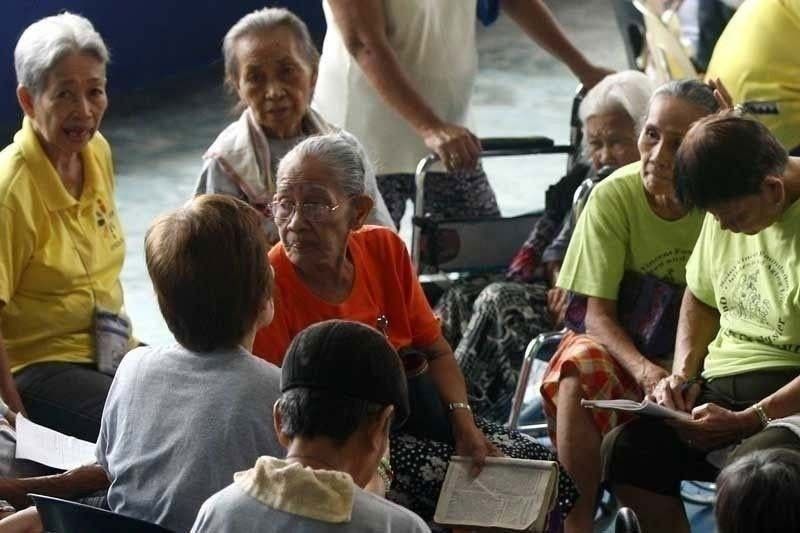
MANILA — It appears that not all members of the Senate support the idea of Charter change. Senator Cynthia Villar mentioned that there is a possibility that seven senators, including herself and four allies of President Marcos, could oppose the proposed amendment to certain economic provisions of the Constitution.
“They claim they are only after the economic provisions. But when they open up the Constitution, nobody can stop them from changing other provisions, including the political portions. That’s not good,” Villar noted over the weekend.
Previously, Senate Minority Leader Aquilino Pimentel III declared that he, along with up to eight other senators, had made the decision to oppose Resolution of Both Houses 6 (RBH6), which aims to amend specific economic provisions of the 1987 Constitution. Senate Deputy Minority Leader Risa Hontiveros was mentioned as one of those who would definitely prevent its approval.
Rather than pursuing constitutional amendments, Villar highlighted that business groups prefer the government to concentrate on effectively implementing the ease of doing business law and tackling corruption issues.
“I have talked to other businessmen. Actually, what they want is the ease of doing business and less corruption,” Villar said.
Villar emphasized that the current proposal to amend specific economic provisions of the Constitution wouldn’t significantly impact the economy. She suggested that economic improvements could be achieved through legislative measures instead.
Pimentel echoed Villar’s sentiment, stating that the government could enhance the lives of Filipinos without resorting to constitutional amendments.
He proposed various initiatives, including anti-corruption programs, promoting ease of doing business, enhancing food production to tackle inflation, ensuring quality education for youth, reducing electricity expenses, and providing support for the elderly, retirees, and individuals with disabilities.
“We have noticed that this already leads to a big change towards the progress of Filipino life. There is no need for constitutional amendments,” Pimentel said.
Additionally, he emphasized the importance of ensuring a highly transparent budget process within the government.
“Let’s make the Philippines a manufacturing place, because manufacturing will surely create jobs,” Pimentel pointed out.
Senate President Juan Miguel Zubiri mentioned that Resolution of Both Houses 6 (RBH6) requires the support of three-fourths or 18 out of the 24 senators for passage before proceeding to a bicameral conference and eventually to a plebiscite for public approval.
Senator Sonny Angara stated that experts from the technical vocational and private education sectors will be invited to participate in the upcoming public hearing of the Senate subcommittee on constitutional amendments, which will address the proposal for Charter change.
Angara, who is responsible for conducting hearings on RBH6, noted that various personalities and experts from the technical-vocational and private education sectors have been invited to the hearing scheduled for tomorrow.
“It’s a continuation of the session for higher education. More were invited from the tech voc and private education sector,” he said in a Viber message to Senate reporters.
Angara’s subcommittee has conducted three public hearings so far. The first hearing included legal experts who expressed diverse opinions on RBH6. The second hearing was attended by business leaders, while the third involved participation from private educational institutions.
Senate President Zubiri expressed appreciation for the statement made by Commission on Elections Chairman George Garcia, indicating the poll body’s openness to holding a plebiscite on Charter amendments alongside the 2025 midterm elections. Zubiri highlighted the potential savings of a significant amount, approximately P13 billion, if the plebiscite were synchronized with next year’s elections. This substantial sum could then be redirected towards benefiting the welfare of Filipinos in other areas.
Revoking a law is legally more advantageous than amending it
Retired Chief Justice Reynato Puno has proposed a straightforward solution to address “ambiguities” in the drafting of the 1987 Constitution. He suggests that a “repeal” would be legally preferable to amending the Charter.
“Just repeal the three restrictive provisions, which we want to be out,” Puno suggested to lawmakers, referring to Articles 12 (public utilities), 14 (education) and 16 (advertising).
“In addition, you just repeal Article 2 Section 19 of the Constitution which states ‘the State shall develop a self-reliant and independent national economy effectively controlled by Filipinos.’ Include that in the repeal,” he proposed during the hearing of the committee of the whole.
“We are now on uncharted waters,” Puno – a highly-respected constitutionalist who was also one of the framers of the Constitution – pointed out, warning that both efforts of the Senate and the House to amend the Charter may all be put to naught in a potential “constitutional challenge.”
This is due to the ambiguity regarding the manner of voting, whether separately or jointly, in the Constitution. Such ambiguity poses a risk of being challenged in the Supreme Court. Additionally, the proposed inclusion of the phrase “unless otherwise provided by law” could potentially grant Congress the actual sovereign will of the people.
“Once this case is before the SC, we do not know the time it would be decided and we do not know how the court will decide. If that happens, all these wishes of us, all these desires of us, that we invite foreign businesses, will not come to reality,” Puno warned, essentially due to uncertainty.
The “rigid” requirement outlined in the Constitution, as clearly stated in the phrase “sovereignty resides in the people, and all government authority emanates from them,” signifies that Filipino citizens hold supreme power, surpassing even elected public officials.
“This could be a waiver of the people to approve or disapprove any change to the Constitution, or as a delegation of the people’s power to Congress,” Puno emphasized, adding that such exercise of senators and congressmen will “only be valid” once the people approve it in a plebiscite. The referendum, or the “approval by the people cannot be set aside, cannot be short-circuited.”
“So again, these are some of the constitutional problems. What is the way out? My respectful submission is to just do away with this phrase ‘unless otherwise provided by law,’” he said.
The esteemed legal expert, renowned for his scholarly writings, emphasized that the involvement of the people and their ultimate decision-making authority has consistently been a fundamental aspect of all of the Philippines’ Constitutions—from the 1935, 1973, to the 1987 Constitution, which was established in the post-Marcos Sr. era.
Puno reiterated that this principle is non-negotiable, as such power has not been granted to Congress. Allowing Congress to take such action would pave the way for an influx of amendments through ordinary legislation, effectively bypassing the people’s power to approve or reject changes to the Constitution.
“Thus subverting their (people’s) sovereignty,” the 83-year-old veteran jurist, who spent half of his life and career in the judiciary, asserted.
He believes that by repealing these provisions, Congress would have the flexibility to enact laws that could attract more foreign direct investments into the country.







